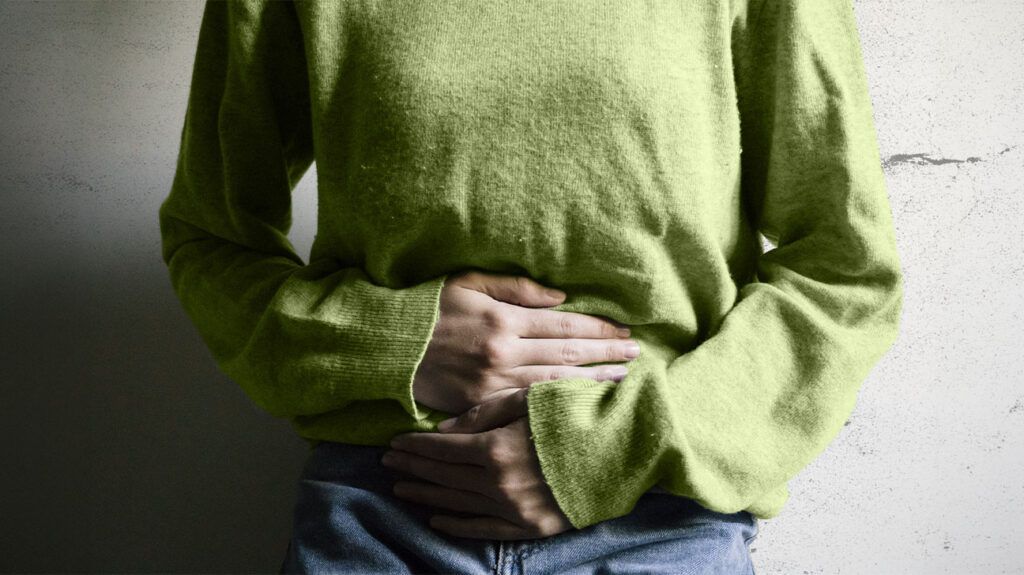Irritable bowel syndrome (IBS) and small intestinal bacterial overgrowth (SIBO) can cause very similar symptoms, including bloating after meals, constipation, and diarrhea.
SIBO is a form of dysbiosis, or an imbalance of gut microbes, whereas IBS is a group of symptoms.
According to a
This article looks at SIBO versus IBS, including how the symptoms and causes may differ. It also explores whether people can test themselves for SIBO and when to contact a doctor.

SIBO and IBS are both functional digestive disorders. This means they interfere with the functioning of the digestive system.
However, while IBS is a collection of symptoms that often have an unclear cause,
For some people, SIBO may be the cause of IBS. The authors of a
Can you have SIBO without IBS?
Yes, it is possible to test positive for SIBO without having IBS symptoms. Not everyone who has a positive test result for SIBO has noticeable symptoms.
Can you have IBS without SIBO?
Yes. While
The symptoms of SIBO and IBS can be very similar. Both conditions can cause:
- abdominal pain
- bloating and discomfort
- constipation, diarrhea, or both
- malabsorption (difficulty absorbing nutrients)
- flatulence (gas)
The symptoms of both conditions can vary from person to person. As a result, symptoms alone are not a reliable indicator of whether a person has IBS or SIBO.
People with SIBO may also experience brain fog, or mental fatigue. A small
The type of SIBO a person has can affect the symptoms they experience. There are three types:
- Hydrogen-dominant: This type occurs as a result of hydrogen-producing bacteria. People with hydrogen-dominant SIBO typically experience more diarrhea than constipation.
- Methane-dominant: This type occurs due to archaea, a type of microbes that produce methane. Typically, people with methane-dominant SIBO mainly experience constipation.
- Hydrogen sulfide-dominant: This type typically causes diarrhea. Anecdotally, people also report that it causes unpleasant-smelling gas.
There are different methods to diagnose SIBO and IBS.
Anecdotally, people consider these tests to be effective for diagnosing the conditions, but they may have limitations.
SIBO small bowel culture test
However, this is an invasive test. It involves performing an endoscopy, which creates
SIBO breath tests
Because getting a culture of bacteria is invasive, doctors may use a breath test instead.
The test works by measuring the gases that are present in a person’s breath after they consume a sugar solution. Either glucose or lactulose could be present. Lactulose is a type of sugar that only gut bacteria can break down.
When the bacteria start to break down the sugar, they produce gases. The volume and type of the gases can tell doctors how much, and what types, of bacteria are overgrowing in the small intestine.
To prepare for a breath test, people need to follow a special diet and then fast for a period of time before the test begins. For the test, they drink a lactulose solution and then collect breath samples regularly over a period of time.
A rapid rise in exhaled hydrogen or methane during this time may suggest a bacterial overgrowth in the small intestine. However, the test
Limitations
Breath testing is an indirect measurement that is
There are also advantages and disadvantages to using either a glucose test or a lactulose test. The body absorbs glucose rapidly, so a glucose test is
However, this can also mean the glucose does not reach the whole small intestine, which could produce false negatives.
IBS diagnosis based on symptoms
If other diagnostic tests are negative, doctors
The Rome IV criteria define IBS as a functional bowel disorder that causes recurrent abdominal pain and a change in bowel habits. The criteria also specify that symptoms must begin at least 6 months before the diagnosis and occur for at least the last 3 months.
Diagnosing IBS this way can be challenging because of the nonspecific nature of the symptoms. As a result, research into better options is ongoing.
The only way people can test themselves for SIBO is by using an at-home breath test kit, which they then send off to a laboratory for analysis.
People may be able to get a lactulose or glucose breath test from their doctor or from a reputable pharmaceutical company.
Anyone who is concerned that they might have IBS or SIBO should consult a doctor for a diagnosis. A wide range of conditions can cause the same symptoms as IBS, so it is important that doctors perform diagnostic tests to rule out these conditions and identify a cause.
It is especially important for a person to seek medical help if they experience:
- severe constipation or diarrhea that interferes with their ability to carry out daily tasks
- unexplained or unintentional weight loss
- nutritional deficiencies, which may cause fatigue, dizziness, and other symptoms
- blood in the stool
- a hard lump or swelling in abdomen that gets progressively worse
IBS is a collection of symptoms that interfere with digestion, including constipation, diarrhea, and abdominal pain. SIBO is a form of dysbiosis, or an imbalance of gut bacteria, in which microbes overgrow in the small intestine. The two conditions have similar symptoms.
People should seek medical advice if they notice IBS-like symptoms or unusual changes in their bowel habits.
